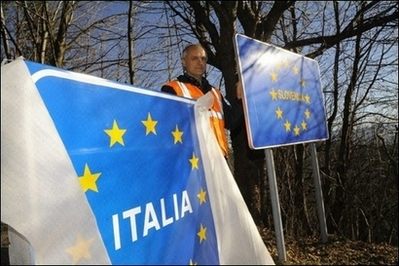Europe celebrates tearing down of borders
Updated: 2007-12-21 11:04
PRAGUE -- Nine mainly ex-East bloc countries on Friday tore down their borders to join a European zone allowing 400 million people to travel from the Arctic Circle in Norway to Portugal without showing a passport.
|
|
"The free movement of people is one of the main rights of human beings," European Commission president Jose Manuel Barrosso said as he hailed the addition of the Czech Republic, Estonia, Hungary, Latvia, Lithuania, Malta, Poland, Slovakia and Slovenia to 15 other states already in the Schengen Treaty zone.
Many European leaders have welcomed the pulling down of internal frontiers as a new sign of the continent overcoming its Cold War division. But many people have also expressed fears of increased crime and illegal immigration.
Austrian Chancellor Alfred Gusenbauer and Slovak Prime Minister Robert Fico sawed down the frontier barrier at the Berg-Petrzalka crossing point between their countries to start three days of commemorations for the landmark change.
"From midnight tonight, you can travel 4,000 kilometres (2,500 miles) from Tallinn in Estonia to Lisbon in Portugal without any border controls," said Fico.
The Czech and Slovak interior ministers marked the elimination of police checks at Europe's newest frontier at Stary Hrozenkov, formed when their two countries were formed from the 1993 split of former Czechoslovakia.
"I do not know if this frontier was useless or not, but we can rejoice at its disappearance," Slovakian minister Robert Kalinak said.
The Baltic states of Estonia, Latvia and Lithuania were first to mark the midnight change. The central European nations followed one hour later, ahead of the Mediterranean island of Malta.
"This is a logical step for Latvia and other new EU member states towards further integration into the EU space," Latvian Foreign Minister Maris Riekstins said in Tallinn.
Authorities in the Estonian capital organised a border guard orchestra to welcome the first vessel to dock as the frontier fell, the Viking Line ferry Rosella.
The treaty also coordinates immigration and law and order policies within the so-called Schengen zone and the European Union estimates that about one billion euros (US$1.4 billion) has been spent improving security on the new outer frontiers.
|
|
|
||
|
||
|
|
|
|







